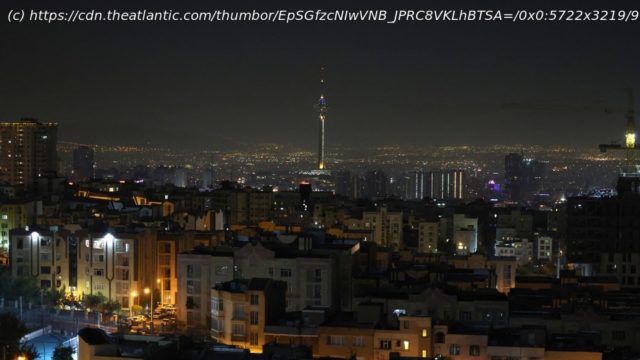After Israel attacked several military sites, Iran has an opportunity to de-escalate the conflict.
It took 25 days, but in the early hours today, Israel responded to Iran’s salvo of missiles earlier this month. The operation, named “Days of Repentance,” was the most significant attack on Iran by any country since the 1980s. The Iranian regime’s years of waging a shadow war on Israel have finally brought the violence home, something the regime had repeatedly promised its people it would avoid.
The attacks were significant, and likely to cause considerable damage. At least four officers of the Iranian army, serving in missile-defense units, were killed. Nevertheless, Iran is relieved that its worst fears didn’t come true. A day before the attacks, Israel had used intermediaries to warn Iran about them, to make sure they wouldn’t cause massive casualties, Mostafa Najafi, a security expert in Tehran with connections to the regime’s elites, told me. He said the attacks weren’t “as vast and painful as Israeli officials had claimed” they would be. Israel did not target Iran’s infrastructure, such as its oil and gas refineries, nor did it assassinate political or military leaders.
Because of this, Iran has an opportunity to call it quits by giving a weak enough response that wouldn’t invite Israeli retaliation. Iran can stop the tit for tat, if it’s willing to resist the hard-line voices that want the country to escalate and even widen the conflict.
Life in Tehran has quickly sprung back to normal. The city’s streets were clogged with traffic as usual on Saturday, the first day of the week in the country. Although all flights had initially been suspended, Tehran’s two main airports are back in operation.
“I believe Iran will respond to the attacks,” Afifeh Abedi, a security expert in Iran who is supportive of the government, told me. “But I doubt there would be escalation,” she said. “Countries of the region will stop this, and the U.S. will try to manage the situation.”
Abas Aslani of the Tehran-based Center for Middle East Strategic Studies agrees. “The evidence doesn’t currently point to a broader war,” he told me. “But this doesn’t necessarily mean that Iran won’t respond.






